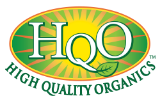As summer kickstarts the importance of health and wellness, consumers want high quality organic products they can trust. But what is really behind the meaning of something that’s labeled organic? We break it down for you below, and give you a clear understanding of what exactly you are buying when you purchase organic products.

Definition of “Organic”:
The definition of the term “organic” according to the Codex Alimentarius Commission says, “Organic agriculture is a holistic production management system that avoids use of synthetic fertilizers, pesticides and genetically modified organisms, minimizes pollution of air, soil and water, and optimizes the health and productivity of interdependent communities of plants, animals and people.” Organic agriculture prioritizes all healthy elements – from the soil to the crop productivity, to the environment. Organic farmers take specific preventative measures because they consider things like potential environmental and social impacts that can come from toxic chemicals and genetically modified organisms. Farmers that focus on the production of their crops and preventative practices, eliminate the need of synthetic pesticides and fertilizers among many other things. These implementations allow farmers to claim the organic label.

Organic farmers use practices that include biological fertilizers such as: cover crops, animal manure; enhanced crop diversity, plant by-products and management practices that restore, maintain, and enhance ecological balance. These fertilizers help improve soil quality and enhance the soil’s ability to absorb water, overall making it easier for the plant to grow. Improving soil quality helps the plant absorb and store carbon and other nutrients needed to grow healthy crops, which in turn helps the plant resist insects and diseases without the use of synthetic pesticides. Studies show that organic systems have 32% to 84% greater microbial biomass carbon, microbial biomass nitrogen, total phospholipid fatty acids, and dehydrogenase, urease and protease activities than conventional systems.
What the USDA Organic Label Means:
When you arrive at the grocery store, and you go into the organic foods section you will typically see a sticker that says, “USDA certified organic”. That sticker means that the product was grown or made without the use of any unnatural, chemical based, genetically modified substance. Any finished product that is produced in full compliance with the USDA organic regulations is certified organic and can be a trusted label as such. According to the USDA, products produced using exclusively organic methods, containing only organic ingredients, are allowed to carry a label declaring “100 percent organic” and may use the USDA Organic Seal. USDA foods are grown and processed according to the federal guidelines addressing soil quality, pest and weed control, animal raising practices, and the use of additives.

Without the use of pesticides, organic farmers rely greatly on natural and local resources for their crops. In instances where a farmer has to use a synthetic substance to achieve a specific purpose, the substance must first be approved by criteria that examine its effects on human health and the environment by the USDA. There is a specific list of non-synthetic and synthetic materials not organically produced that can be used in food labeled organic.
